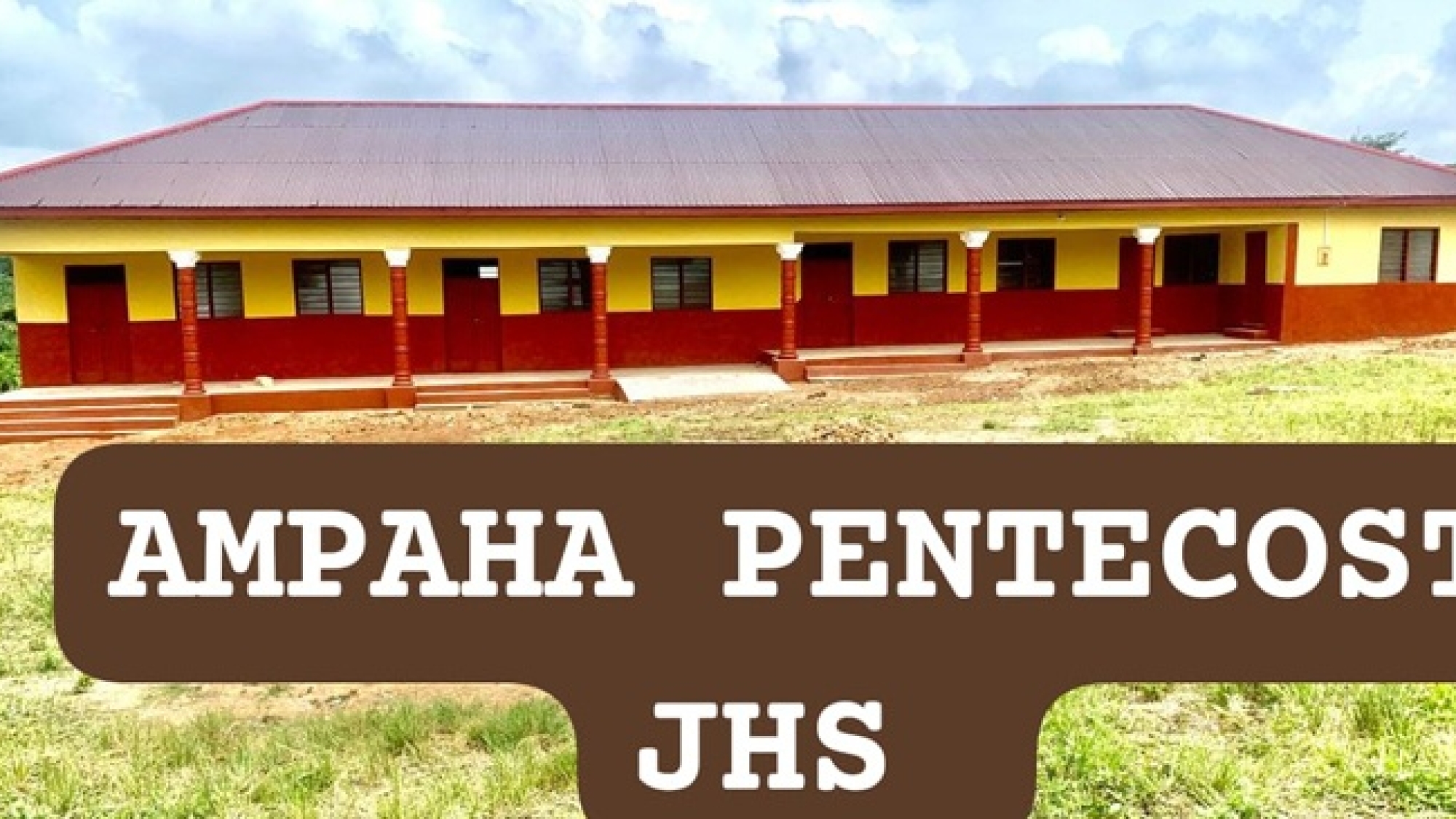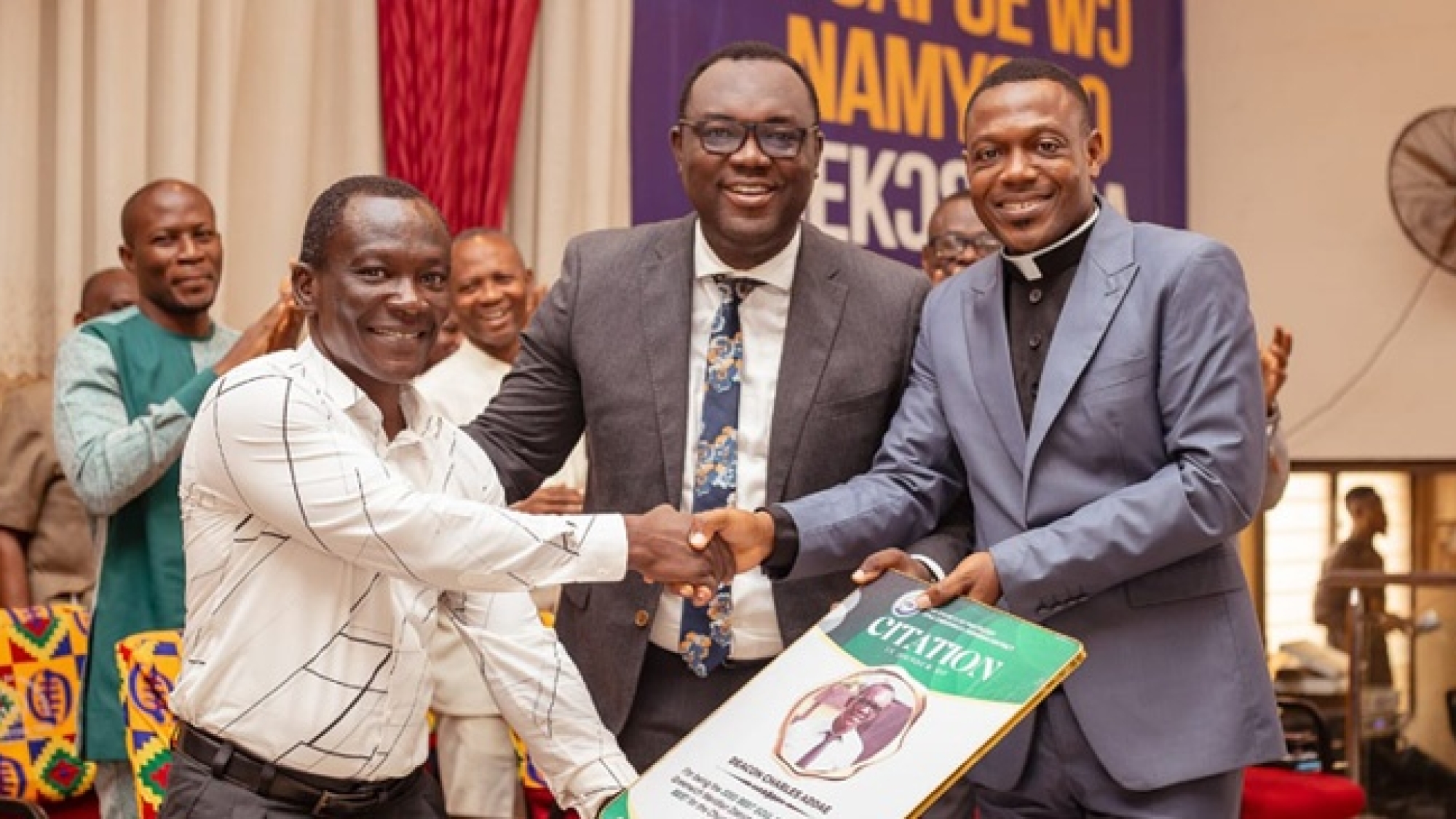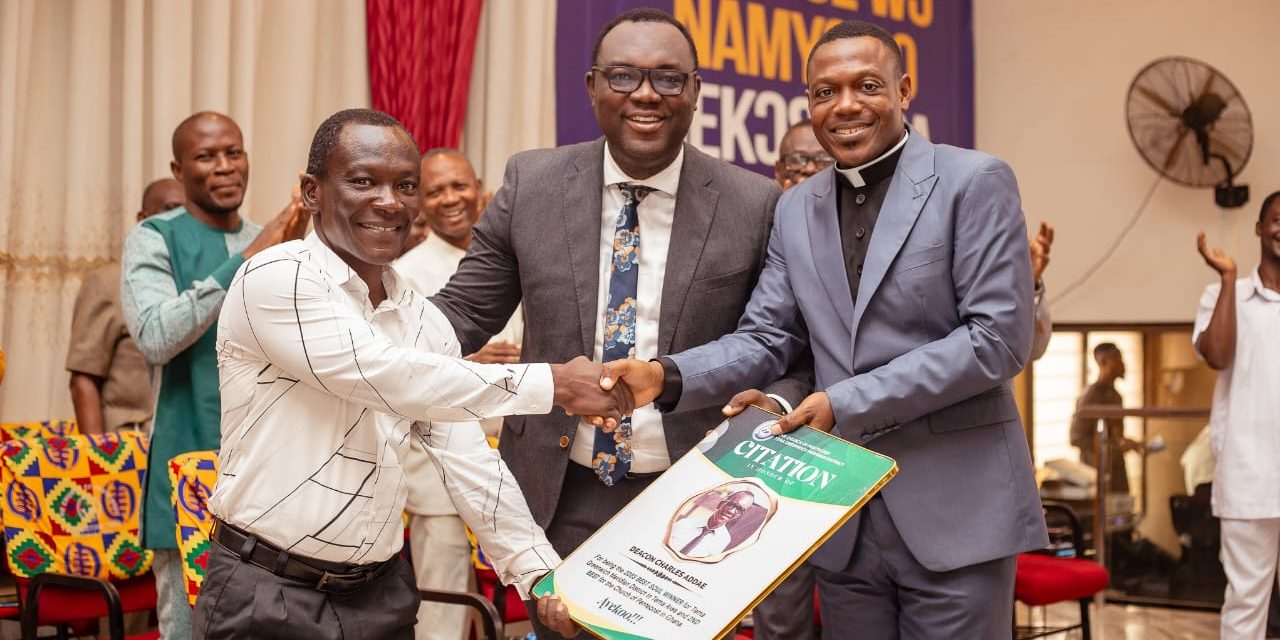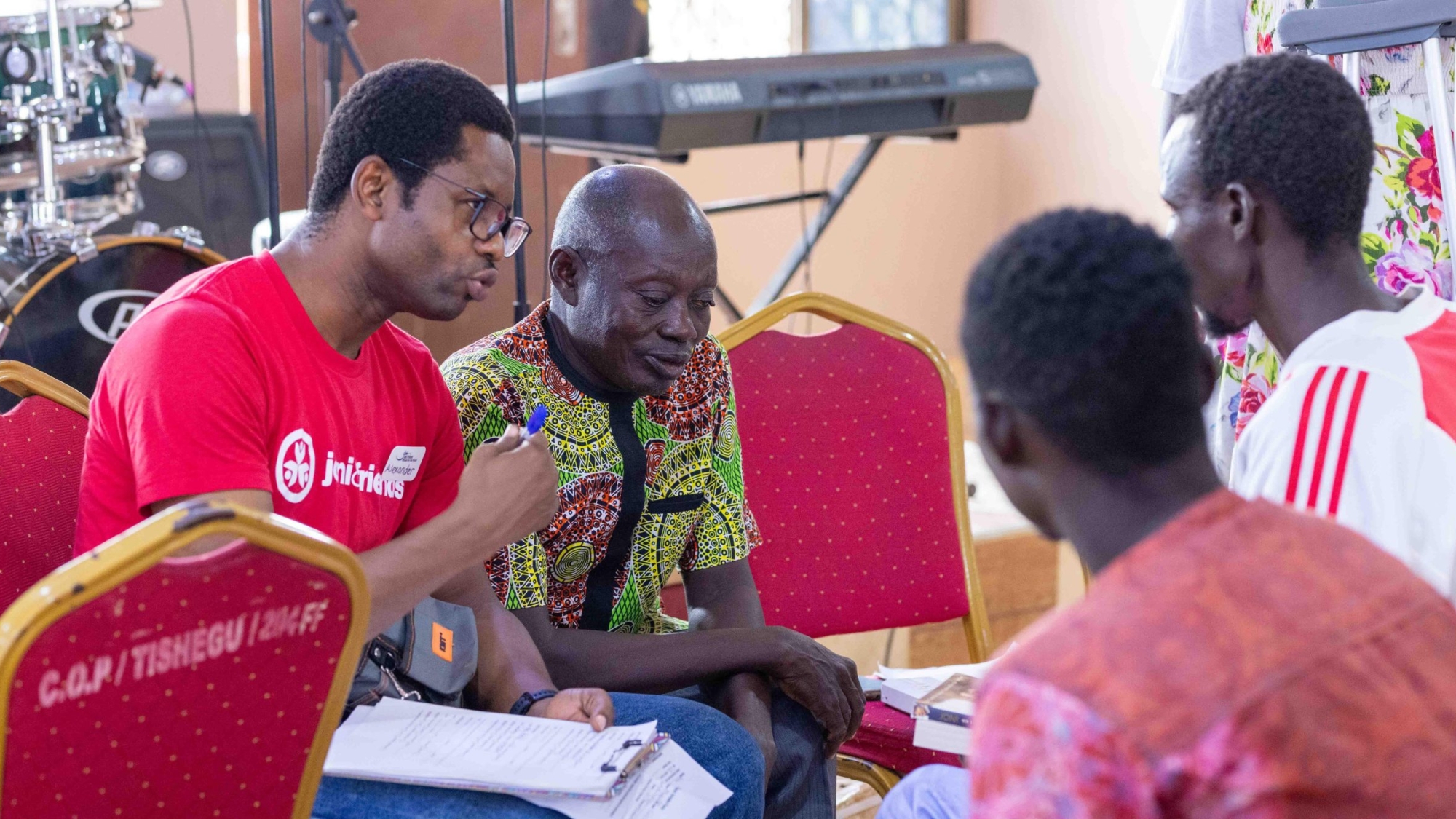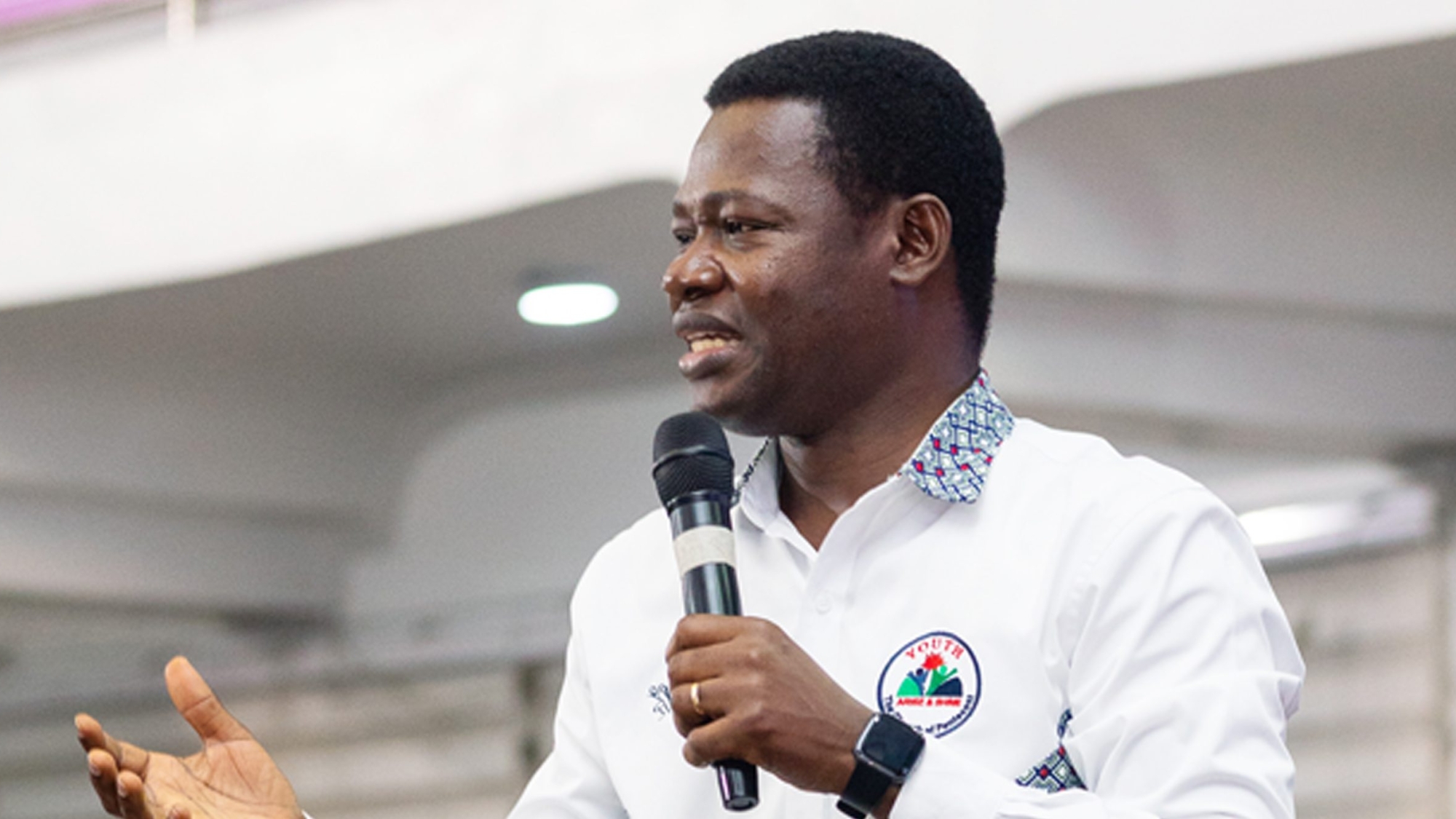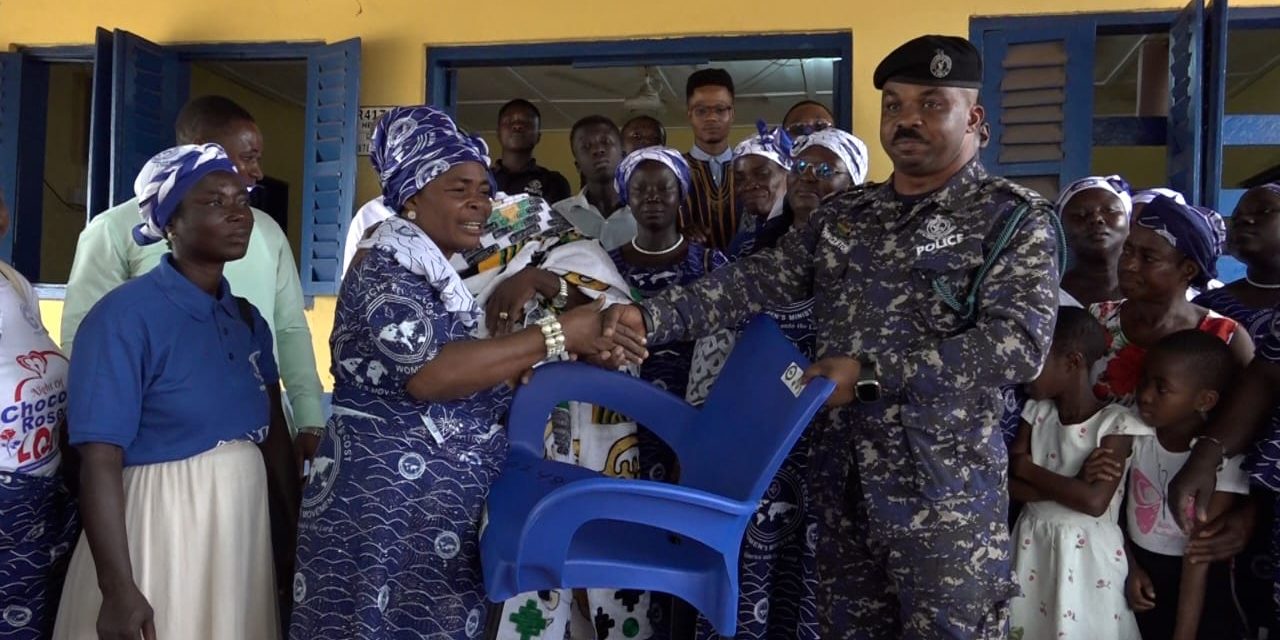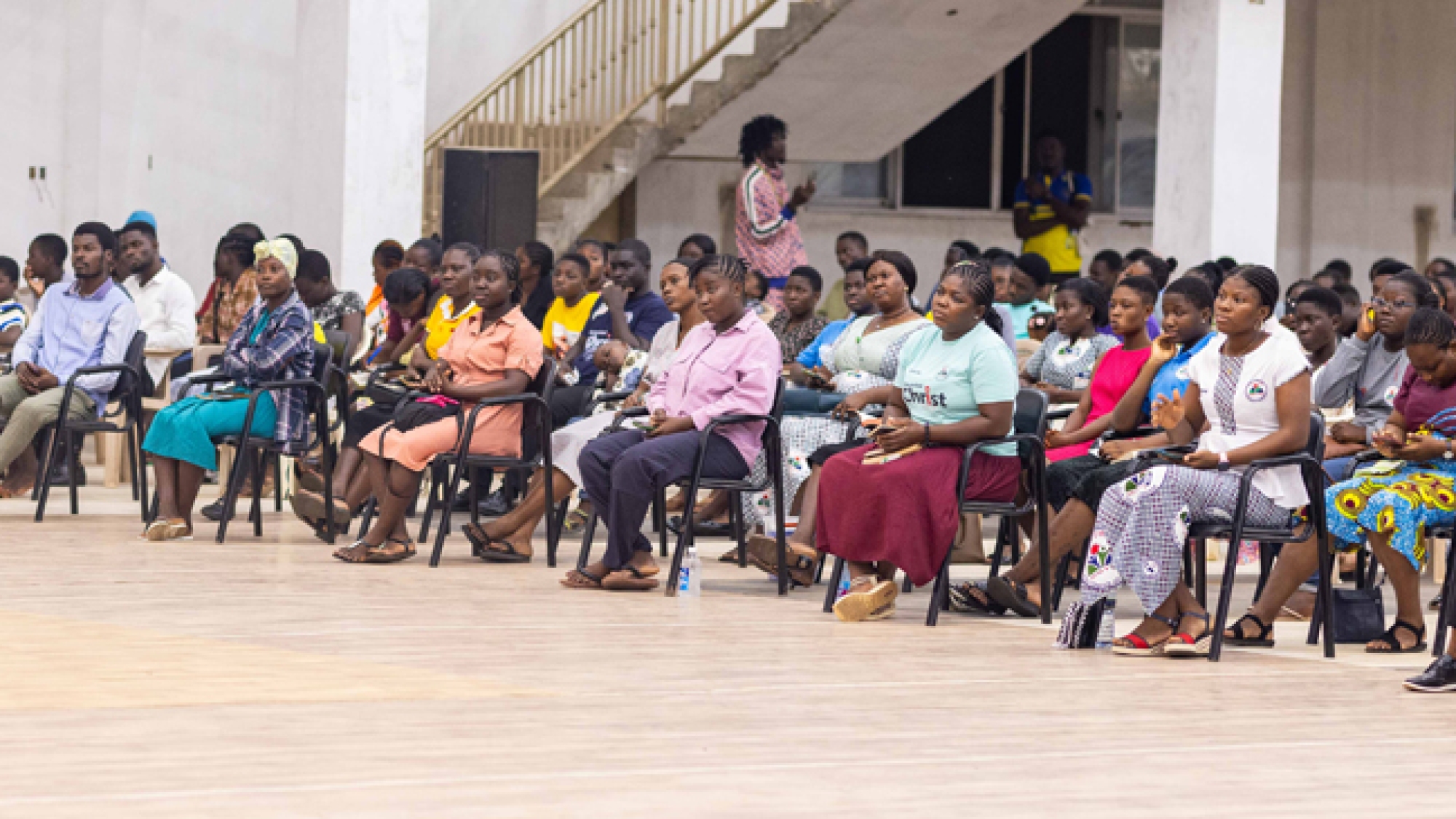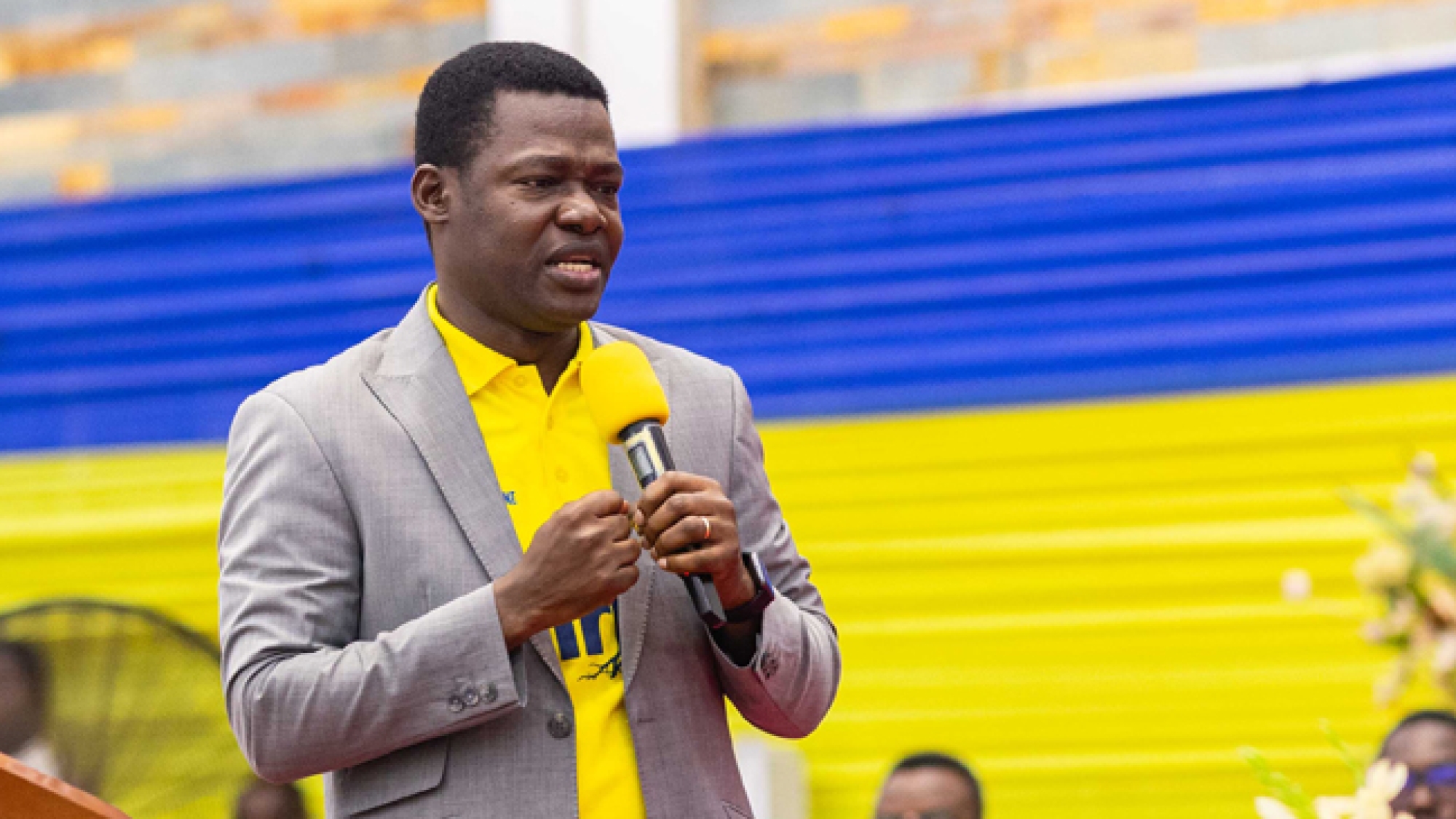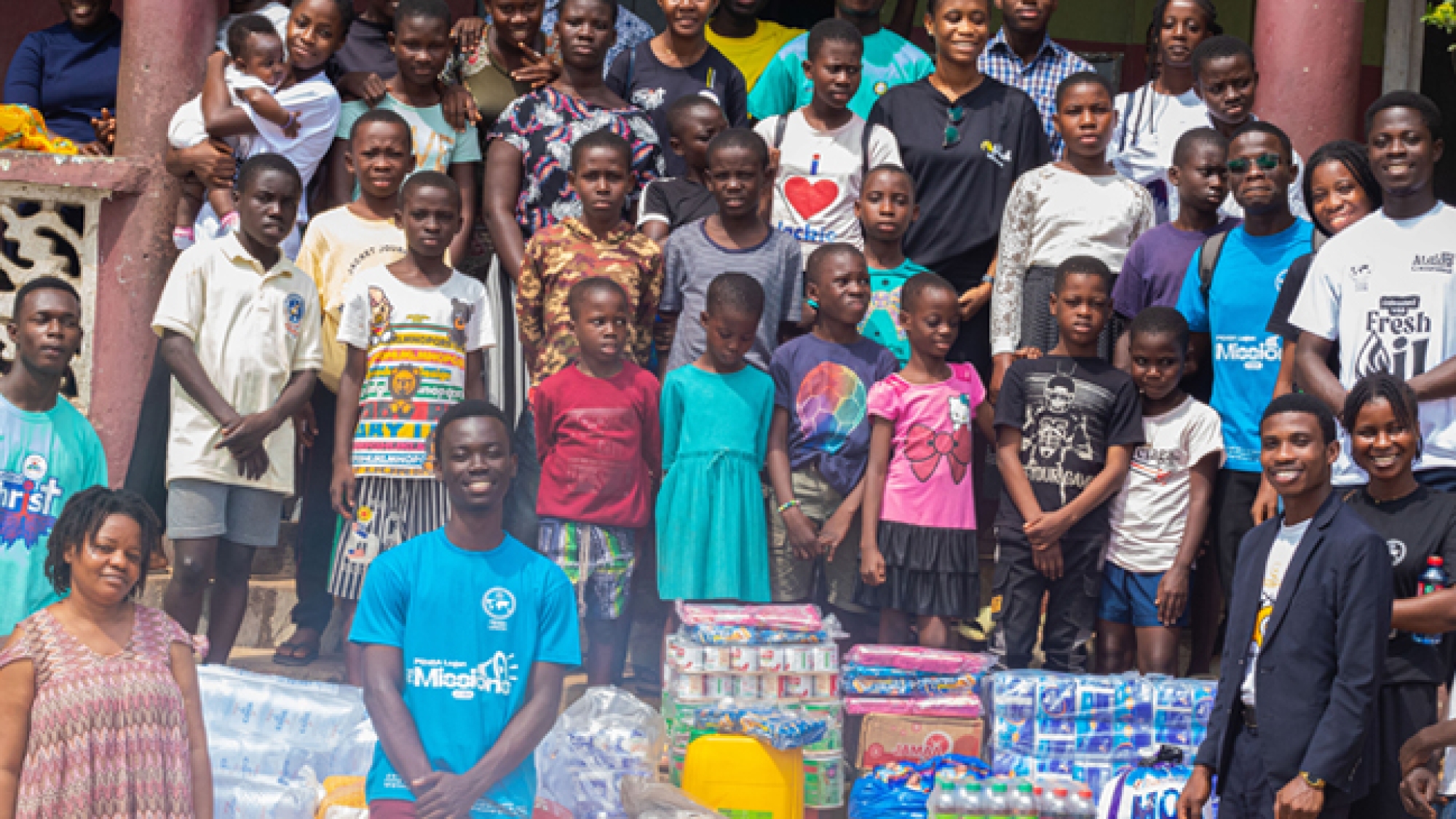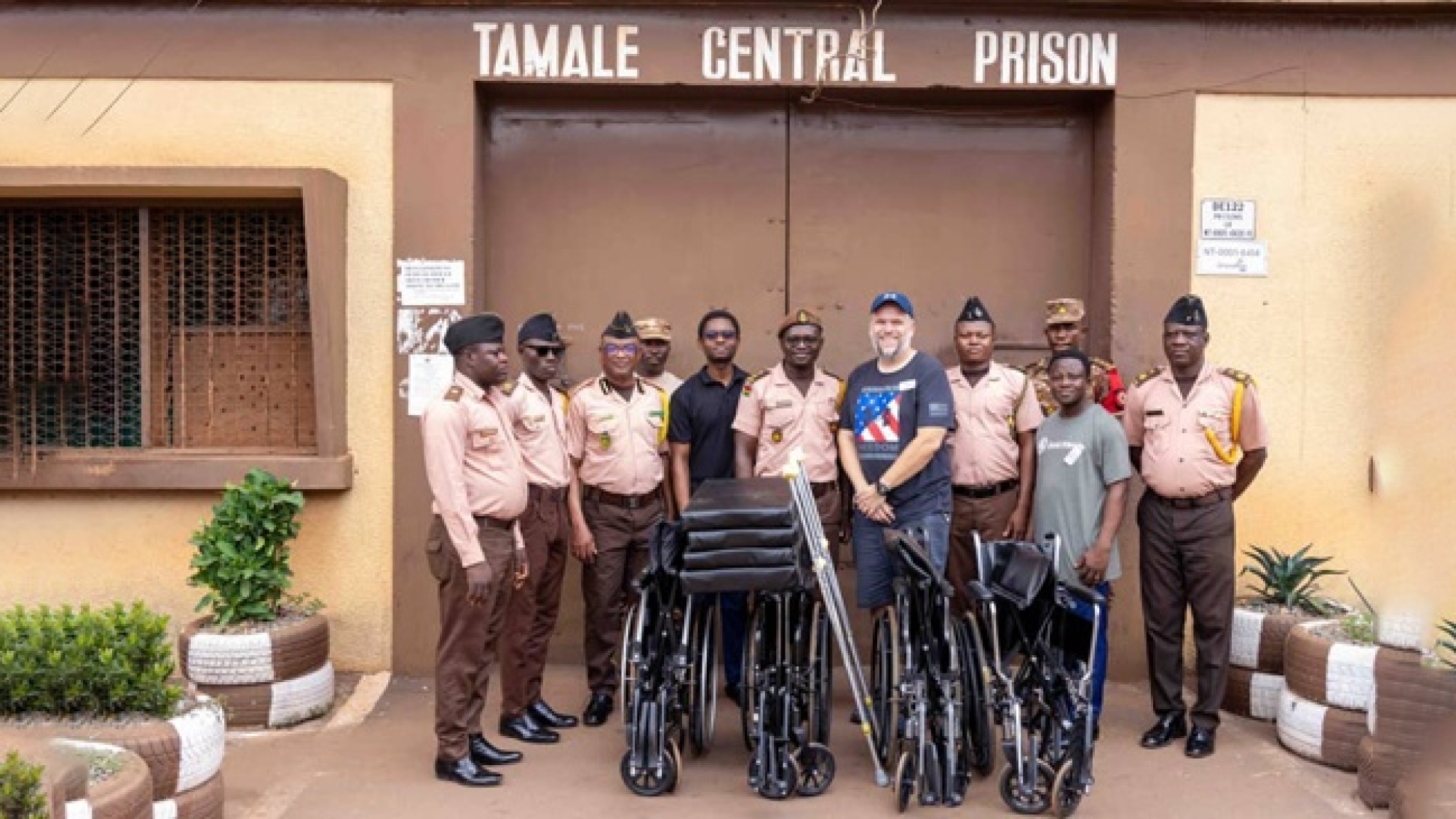The Pentecost Social Services (PENTSOS) commissioned a three-unit classroom block for the Pentecost Junior High School (JHS) at Ampaha in the Ashanti Bekwai Area on Tuesday, July 23, 2024.
The project aims to address the infrastructure needs and provide a conducive learning environment for students, demonstrating The Church of Pentecost’s commitment to supporting education, compassion, and community development.

Ampaha JHS had faced significant infrastructure challenges, including overcrowding and inadequate classroom facilities, which hindered the delivery of quality education.
The church became aware of these needs through a working visit by the former PENTSOS Director, Elder Richard Amaning, in 2023. Recognizing the critical role education plays in empowering individuals and transforming societies, PENTSOS decided to support Ampaha Pentecost JHS by addressing their infrastructure needs.

The project involved constructing a three-unit classroom block, comprising a staff common room, headmaster’s office, a library, and three spacious classrooms. The project, spanning ten months, was carefully planned and executed to ensure timely completion, quality construction, and minimal disruption to the school’s operations.
The dedication and handover ceremony took place at the Ampaha Central Assembly auditorium and the school premises, respectively. It was attended by the Bekwai Area Head, Apostle Fred Tiakor, ministers and their wives in the area, Eld. Ing. Frank Nsuah Adutwum (Ag. PENTSOS Director), Nana Antwi Boasiako (Ampaha Paramount Chief) and 13 other sub-chiefs, Hon. Kofi Adu Amoateng (DCE, Bosome Freho), Mr. Solomon Owusu (District Director of Education), the Presiding Member of Bosome Freho District, assembly members, headteachers, teachers, students, church leaders, and members.
Pastor Emmanuel Okoh Lartey (Bekwai District Minister) delivered a sermon highlighting the essence of the church, based on John 1:11-12.
He explained that the concept of the church began with Adam and Eve, but they failed. God then chose the Israelites as His people, but they also disappointed Him. Finally, God extended His invitation to the entire world, offering everyone the opportunity to become His people through belief in His name (John 1:12).
He emphasised that the church is a community of believers called to worship, reflect God’s glory, and partner with Him to achieve His purposes (1 Peter 2:9-10).
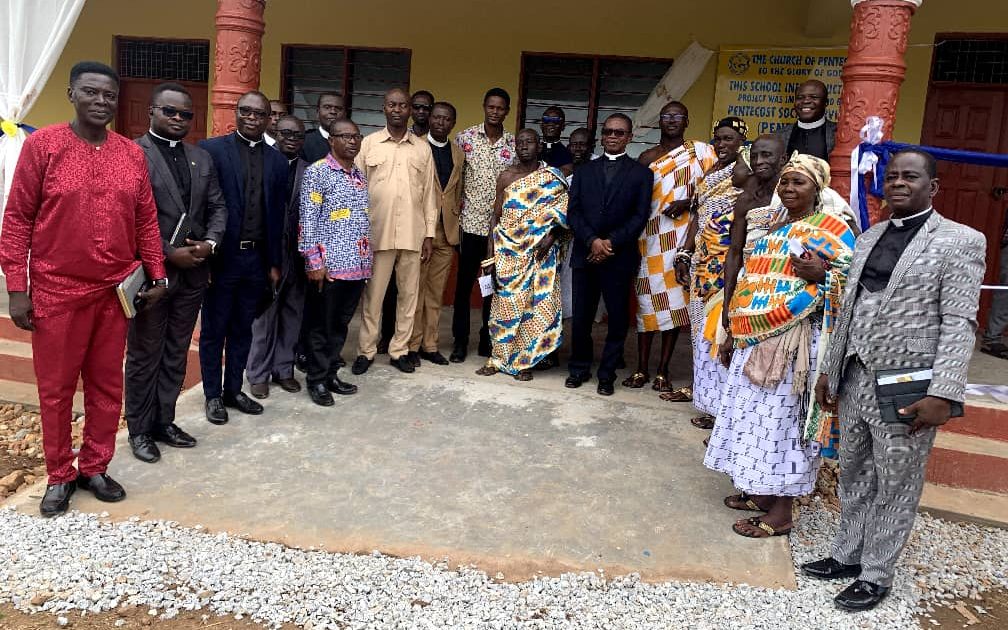
The new three-unit classroom block will accommodate more students, reducing overcrowding and significantly enhancing the learning environment.
The spacious, well-lit, and ventilated space will foster academic excellence, improve student engagement, motivation, and overall academic performance.
The event concluded with a tour of the new facility, followed by a symbolic key handover from Apostle Fred Tiakor to the Ampaha Pentecost JHS Headmaster, marking the official transfer of ownership. A celebratory reception and closing prayer ended the memorable occasion.
Report by Mrs. Lois Amankwah Kyei





